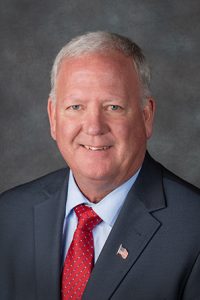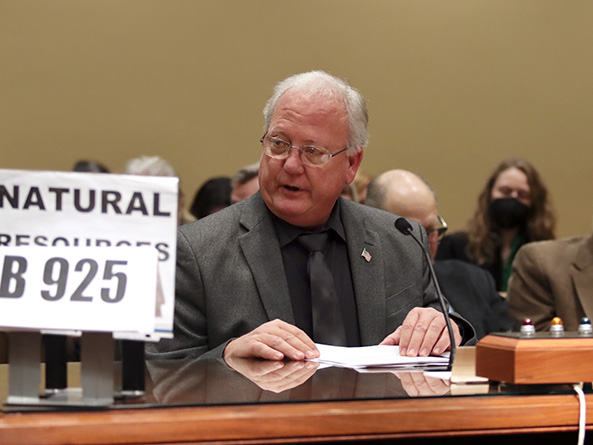Bill would accelerate adoption of healthy soil practices
A state-assisted learning community would help farmers adopt practices that improve Nebraska’s soil and water health under a bill heard Jan. 26 by the Natural Resources Committee.
Creighton Sen. Tim Gragert, sponsor of LB925, said the Nebraska Healthy Soils Task Force, which issued its recommendations in December 2020, found two major barriers to the adoption of those practices: uncertainty about return on investment and a lack of education.
Under his proposal, the state Department of Natural Resources would provide technical and legal assistance to a producer learning community — a nonprofit, voluntary membership organization led by agricultural producers — to foster skills and share knowledge related to healthy soils management.
Gragert said the learning community would enhance, not replace, healthy soil workshops offered by Nebraska Extension and other entities. Often, he said, farmers are more willing to learn about new practices from fellow producers who already use them rather than a “guy from the government.”
Under LB925, the department also would hire a facilitator to help organize the learning community and help it acquire gifts, grants and sponsorships. The bill states legislative intent to appropriate $250,000 to the program for the next five years, but Gragert said it could be self-sustaining after that.
The proposal also would require the department to divide the state into different regions representative of each area’s diversity of soils, topography, rainfall, cropping systems and other factors. It would authorize the department to lease private land for the purpose of establishing demonstration and research farms in those regions.
Finally, the bill would require the department to submit an annual report to the Legislature each year beginning in 2022.
Charles Shapiro, a retired University of Nebraska-Lincoln soil fertility specialist, testified in support of LB925. After reviewing many surveys about how farmers receive new information, he said, it was humbling to discover that they most often learn from other farmers and not an extension specialist like him.
“Farmers would listen to what we said, but they usually look to their peers to confirm the idea,” Shapiro said.
LB925 would connect more farmers with experienced “early adopters” of soil health best practices whose land is near theirs, he said.
Also in support was Craig Derickson, retired Nebraska state conservationist for the Natural Resources Conservation Service. He said producer interest in soil health practices has increased significantly in the last decade.
After participating in soil health activities for the past several years, Derickson said, the most noticeable need is a way to coordinate those activities. A full-time facilitator could do that, he said.
Daryl Obermeyer, a Nemaha County farmer, also testified in support. He said his farm could be used to demonstrate how certain farming practices preserve topsoil, increase the amount of organic matter in the soil and reduce the need for chemical fertilizers.
“We need groups like those that’d be developed under LB925 that could show more of our producers that they are continuing to deplete their soil and are only gaining yield by increasing inputs, which in turn pollutes our groundwater,” Obermeyer said.
Steve Ebke gave neutral testimony on behalf of several state agricultural organizations, including the Nebraska Farm Bureau. He said the groups are concerned that hiring a facilitator would add a “new layer of salary and overhead.”
Ebke said farmers currently have access to a “plethora” of soil health information and programs offered by nonprofit organizations, private businesses, Natural Resources Districts and Nebraska Extension, which he said could fulfill the facilitator role.
“Nebraska Extension should be one of the primary sources of educational and demonstration activities that will continue to promote soil health across the state,” he said.
No one testified in opposition to the bill and the committee took no immediate action on it.


